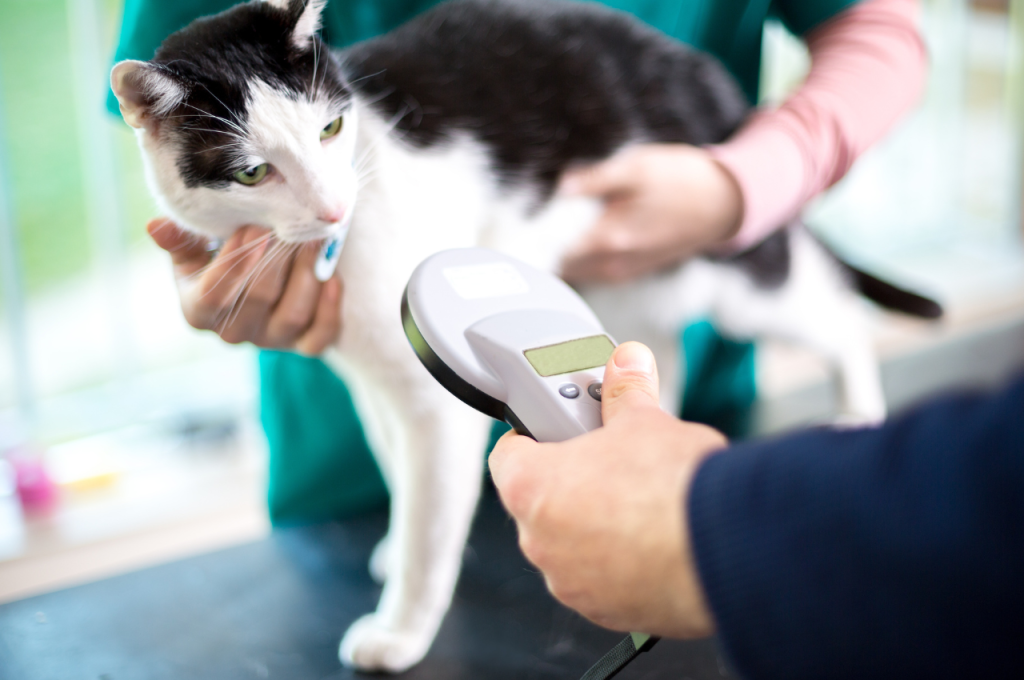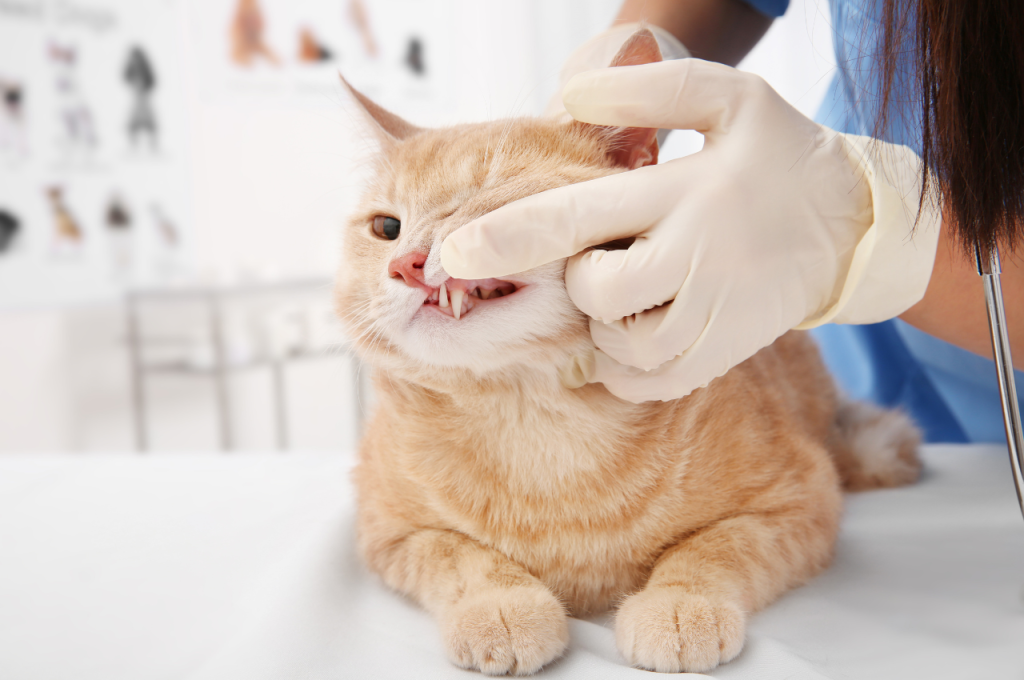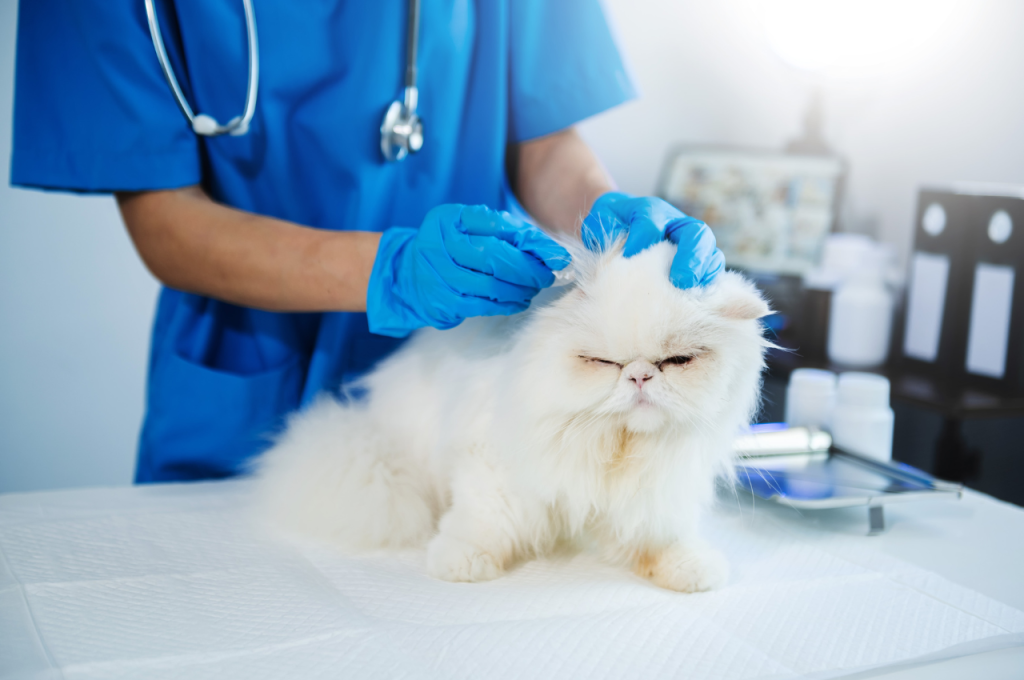Without veterinary care, a cat can develop health issues and diseases that may worsen over time. Regular vet visits are crucial for a cat’s well-being.
Neglecting vet visits can lead to undetected health problems and reduced lifespan for the cat. Cats, like any other pet, require regular veterinary care to ensure they stay healthy and happy. Without proper medical attention, cats may suffer from undiagnosed illnesses, dental problems, parasites, and other health issues that can significantly impact their quality of life. Regular vet check-ups also help in preventing potential health problems before they escalate, allowing for early intervention and treatment. In addition to medical care, routine vaccinations, parasite prevention, and dental care are essential components of a cat’s overall health maintenance. Regular visits to the vet can help prolong a cat’s lifespan and ensure they lead a comfortable and healthy life.
Introduction To Feline Healthcare
Introduction to feline healthcare is essential for every cat owner who wishes to provide the best possible life for their feline companion. Regular veterinary check-ups, vaccinations, and preventative care are crucial for early detection and treatment of health issues. Understanding your cat’s unique needs such as diet, exercise, and mental stimulation plays a significant role in maintaining their overall well-being. Additionally, being aware of common feline health problems, including dental issues, obesity, and chronic diseases, empowers you to take proactive measures.

By prioritizing healthcare and fostering a strong bond with your cat, you contribute to a longer, happier life for your furry friend. Establishing a healthcare routine ensures that your cat thrives both physically and emotionally.
The Importance Of Regular Vet Visits
Regular vet visits are crucial for maintaining your cat’s health. Annual check-ups allow the vet to monitor your cat’s overall well-being, detect any underlying health issues, and administer necessary vaccinations. During these visits, the vet can provide guidance on nutrition, dental care, and parasite prevention, ensuring that your feline friend leads a long and healthy life.
Common Misconceptions About Cat Health
- Cats are independent creatures and can often hide signs of illness, making regular vet visits seem unnecessary.
- Some owners believe that indoor cats are immune to health risks, leading them to forgo vet visits, unaware of potential dangers such as indoor pollutants and obesity.
Preventive Care: The First Line Of Defense
Preventive care is the first line of defense when it comes to keeping your cat healthy. Regular visits to the vet play a crucial role in maintaining your feline friend’s well-being and preventing potential health issues from escalating. Let’s delve into the vital aspects of preventive care that every cat owner should prioritize.
Vaccinations And Their Role
Vaccinations are essential for safeguarding your cat against various infectious diseases. These shots stimulate the immune system, helping the feline body recognize and fight off specific pathogens. Common vaccines for cats include those for rabies, feline herpesvirus, calicivirus, and feline leukemia virus.
Parasite Control Essentials
Protecting your cat from internal and external parasites is a critical aspect of preventive care. Regular deworming and flea/tick prevention are vital in ensuring your cat’s well-being. Internal parasites such as roundworms, hookworms, and tapeworms can cause serious health issues if left untreated.
Dental Health: Often Overlooked
Cats who never go to the vet can suffer from dental health problems that often go overlooked. This can lead to pain, infection, and even tooth loss. Regular check-ups can prevent these issues and keep your cat healthy.
Signs Of Dental Disease
Regular dental care is often overlooked when it comes to cats, but it is a crucial aspect of their overall health. Cats can suffer from various dental issues, and recognizing the signs of dental disease is essential in ensuring their well-being.
Here are some common signs that indicate your cat may be experiencing dental problems:
- Bad breath (halitosis)
- Difficulty chewing or dropping food from the mouth
- Excessive drooling
- Red or swollen gums
- Bleeding from the mouth
- Visible tartar or plaque on the teeth
- Changes in eating habits, such as decreased appetite
- Weight loss
- Behavioral changes, including irritability or aggression
If you notice any of these signs, it is crucial to consult a veterinarian promptly to prevent further complications.
Consequences Of Neglected Dental Care
Neglecting your cat’s dental care can have severe consequences on their overall health. Dental disease not only affects their teeth and gums but can also lead to other health issues throughout their body.
Here are some potential consequences of neglected dental care in cats:
- Periodontal disease: Untreated dental disease can progress to periodontal disease, which involves the inflammation and infection of the tissues supporting the teeth. This can lead to tooth loss and bone damage.
- Oral pain: Dental problems can cause significant discomfort and pain for your cat. They may experience difficulty eating and may avoid certain foods altogether, leading to malnutrition.
- Systemic health issues: The bacteria from dental disease can enter the bloodstream and affect vital organs such as the heart, liver, and kidneys. This can lead to serious health complications and even organ failure.
- Decreased quality of life: Cats with untreated dental disease may experience a decreased quality of life due to chronic pain, difficulty eating, and overall discomfort.
Regular veterinary check-ups and proper dental care, including professional cleanings and at-home dental hygiene, are necessary to prevent these consequences and ensure your cat’s optimal health.
Nutritional Concerns And Weight Management
Neglecting regular vet visits for a cat can lead to undetected health issues, including nutritional concerns and weight management problems. Without professional care, a cat’s overall well-being and quality of life may suffer, emphasizing the importance of routine veterinary check-ups.

The Impact Of Diet On Health
A cat’s diet plays a crucial role in their overall health and well-being. Without proper nutrition, cats may experience various health issues, including nutritional deficiencies, digestive problems, and weakened immune systems.
A balanced diet is essential to ensure that cats receive the necessary nutrients to support their growth, energy levels, and immune function. Without proper nutrition, cats may be at risk of developing various health problems.
Dangers Of Obesity In Cats
Obesity in cats can lead to serious health complications and reduce their quality of life. Excess weight puts strain on their joints, increases the risk of diabetes and heart disease, and may lead to shortened lifespan.
Weight management is crucial to maintaining a cat’s health and preventing obesity-related issues. Regular monitoring of their diet and physical activity can help in maintaining an optimal weight and preventing obesity-related health concerns.
Behavioral Issues And Mental Health
Without regular vet visits, a cat may develop behavioral issues and mental health problems due to undiagnosed medical issues. This can lead to anxiety, aggression, and other concerning behaviors. Regular check-ups are essential for ensuring a cat’s overall well-being and addressing any potential issues early on.
Stress And Anxiety In Indoor Cats
When cats don’t visit the vet, they may experience stress and anxiety.
How A Vet Visit Can Help
Regular vet visits can detect and address behavioral issues and mental health concerns.
The Silent Sufferer: Chronic Conditions In Cats
Cats with chronic conditions may silently suffer if they never go to the vet. Neglecting regular check-ups can lead to undiagnosed health issues and potential complications. It’s crucial to prioritize veterinary care to ensure a cat’s well-being and prevent unnecessary suffering.
Cats are often known for their agility and independence, but they can also be masters at hiding their pain and discomfort. As a result, cats with chronic conditions can go undiagnosed and untreated for years, leading to serious health consequences. One of the most important things you can do for your feline friend is to take them to the vet regularly, even if they appear healthy. In this blog post, we’ll explore what can happen if a cat never goes to the vet, specifically focusing on chronic conditions like kidney disease and diabetes.
Kidney Disease
Kidney disease is a common condition in cats, especially as they age. Without regular check-ups and screenings, kidney disease can go unnoticed until it reaches an advanced stage. Cats with kidney disease may experience symptoms like increased thirst, frequent urination, weight loss, and lethargy. In severe cases, kidney disease can lead to kidney failure, which can be fatal. With early detection and proper management, however, cats with kidney disease can live comfortable, happy lives.
Diabetes
Just like humans, cats can develop diabetes, a condition in which the body is unable to properly regulate blood sugar levels. Without proper treatment, diabetes can lead to a host of health problems, including nerve damage, blindness, and even death. Cats with diabetes may display symptoms like increased thirst and urination, weight loss, and lethargy. Treatment typically involves a combination of medication, a special diet, and regular monitoring by a veterinarian. Regular visits to the vet can help catch and manage chronic conditions like kidney disease and diabetes before they become life-threatening. If you suspect your cat may have a chronic condition, don’t wait to seek veterinary care. Your furry friend deserves the best possible care and attention, and with your help, they can live a healthy, happy life.
The Cost Of Neglect: Financial And Emotional
Not taking your cat to the vet can lead to costly emergency care expenses and emotional distress.
Emergency Care Expenses
- Vet visits can prevent expensive emergency treatments.
- Early detection can save money on critical care.
The Emotional Toll Of A Sick Pet
- Watching a pet suffer can be heartbreaking.
- Neglect can lead to guilt and sadness.
Creating A Healthcare Plan For Your Cat
Regular veterinary check-ups are crucial to ensure your cat’s well-being. Without proper care, potential health issues may go unnoticed, leading to serious consequences. Creating a healthcare plan for your cat involves regular vet visits, vaccinations, and preventive care to maintain their overall health and detect any problems early.
Finding The Right Vet
Your cat’s well-being starts with choosing the right veterinarian. A good vet should be experienced, compassionate, and reliable. Look for a vet who specializes in feline care. Consider the location and operating hours of the vet clinic. Ask for recommendations from other cat owners.

Setting Up A Regular Check-up Schedule
Regular check-ups are vital for your cat’s health. Schedule annual vet visits for routine examinations. Vaccinations and preventive care are crucial for your cat. Create a calendar to track your cat’s appointments. Follow your vet’s advice for any necessary treatments. Ensuring your cat receives regular veterinary care is essential for maintaining their health and well-being. Regular check-ups and preventive treatments can help detect and prevent potential health issues before they become serious problems.
By finding the right vet and setting up a regular check-up schedule, you can ensure that your feline companion receives the care they need to live a long and healthy life.
Conclusion
Regular veterinary care is crucial for the well-being of our feline friends. Neglecting to take your cat to the vet can have serious consequences on their health. From undetected illnesses to untreated injuries, a cat without proper medical attention is at risk.
Regular check-ups, vaccinations, and preventive care can help keep your cat healthy and potentially extend their lifespan. Remember, your furry companion relies on you to ensure their overall health and happiness. Don’t wait until it’s too late prioritize your cat’s veterinary care today.
